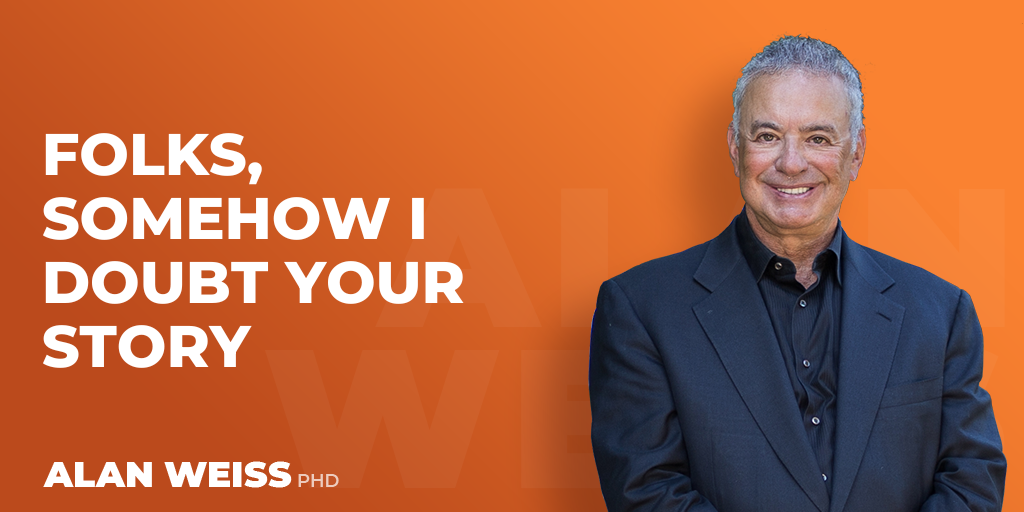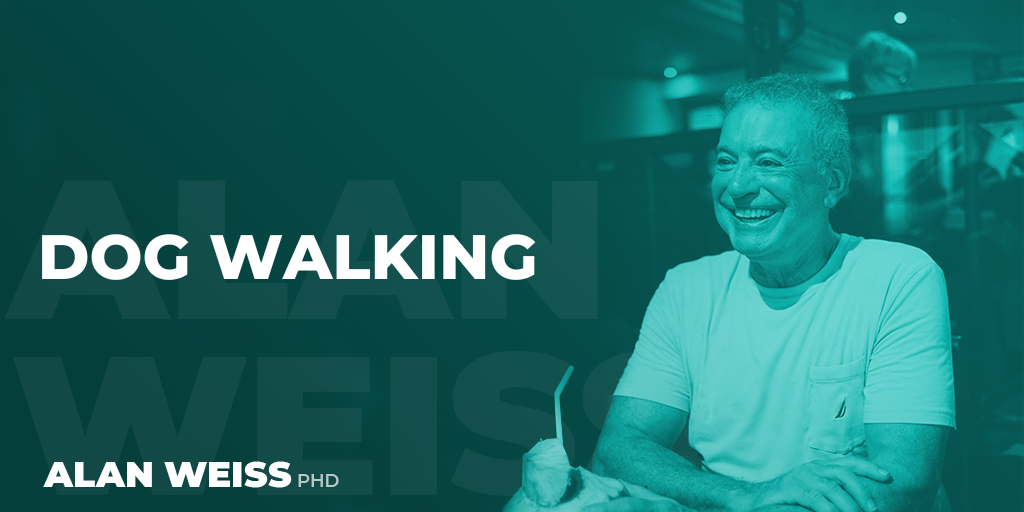Your Legacy is Now
Life is not a search for meaning from others, it’s about the creation of meaning for yourself.
For over 30 years Alan Weiss has consulted, coached, and advised everyone from Fortune 500 executives, state governors, non-profit directors, and entrepreneurs to athletes, entertainers, and beauty pageant contestants. That’s quite an assortment of people, and they run into the thousands. Most of them have had what we euphemistically call “means,” and some of them have had a lot more than that. Others have been aspiring and with more ends in sight than means on hand.
Alan Weiss states:
I’ve dealt with esteem (low), narcissism (high), family problems, leadership dysfunctions, insecurities, addictions, and ethical quandaries. And I’ve talked about them through the coronavirus crisis. But don’t get the wrong idea. About 95% of these people have been well-meaning, honest (to the best of their knowledge), and interested in becoming a better person and better professional. Otherwise, they wouldn’t be talking to me.
I found the equivalent of the “runner’s wall” in their journeys, where they must break through the pain and the obstacles and then can keep going with renewed energy and spirit. But runners know how far they must go after the breakthrough, be it another half lap or another five miles. There is a finish line.
I’ve found that people in all positions, even after the “breakthrough,” don’t know where they are in the race, let alone where the finish line is.
They do not know what meaning is for them. They may have money in the bank, good relationships, the admiration of others, and the love of their dogs. But they have no metrics for “What now?” They believe that at the end of life there is a tallying, some metaphysical accountant who totals up their contributions, deducts their bad acts, and creates the (hopefully positive) difference.
That difference, they believe, is their “legacy.”
But the thought that legacy arrives at the end of life is as ridiculous as someone who decides to sell a business and tries to increase its valuation the day prior. Legacy is now. Legacy is daily. Every day we create the next page in our lives, but the question becomes who is writing it and what’s being written. Is someone else creating our legacy? Or are we, ourselves, simply writing the same page repeatedly?
Or do we leave it blank?
Our organic, living legacy is marred and squeezed by huge normative pressures. There is a “threshold” point, at which one’s beliefs and values are overridden by immense peer pressure. Our metrics are forced to change.
In an age of social media, biased press, and bullying, we’ve come to a point where our legacy, ironically, is almost out of our hands.
Yet our “meaning”—our creation of meaning and not a search for some illusive alchemy—creates worth and impact for us and all those with whom we interact.







Gareth Kane
Couldn’t agree more. The gurus focus on process rather than outcome.
Realising that my social media network has limited buying power, I have started expanding my low cost/high volume products to suit their needs. I’ve never seen a social media guru suggest this sort of thinking.
Stephen
Disclosure: Although I have a focus in social media I don’t buy in to the hype. Indeed the way social media is so positively proclaimed to be a panacea for all business ills often makes me jaded.
However.
It seems to me (and I could be wrong since I haven’t read it) the research misses out the intangible influence social media has on purchasing decisions. For example, if Alan (who I respect and follow avidly in social media) blogs or tweets about the fantastic customer service he receives from Acme Corp, I (and no doubt others) are more likely to buy from Acme Corp because I (we) trust and value his opinion. Likewise if Acme doesn’t deliver the goods and Alan blogs or tweets his disdain I’m going to be less inclined to purchase from it.
Now imagine people influencing each other every day like this across social media around the world. It’s been proven we are more likely to make a purchasing decision based on what our friends, family and people we trust recommend.
Surely that has a big impact on purchasing decisions. Online or off.
Alan Weiss
Hard to reply if you haven’t read it, you may or may not feel the same way. I use personal referrals such as you mention only from those I trust. I find the recommendation by people on Facebook and other places to be completely random and often not in keeping with my personal preferences and standards. They’re often looking for cheapest, not best value.
Nhat Pham
Alan,
Caught this post after reading another. Enjoy your posts, content and seminars.
though I disagree with this one… or at least it needs an update.
While I know this was done a year ago, there’s clearly a lot of change since then.
Depending on if you’re B2C of B2B different mediums have different influences.
Here’s one example with Pinterest
http://buildersocialmedia.blogspot.com/2012/07/pinterest-influences-37-of-men-to.html
You could Google several more stats.
I have made several purchases because of friends post, my Linkeidn/Facebook/Twitter relationships and I both have reached out to others to each other and their recommendations that have lead to close business that never hit the stat meter.
The real question, are you measuring your Social Media and making sure it connects to your lead generation in your CRM? Are you asking your end user during or after the purchase how they heard about your product or service and diligently training your staff to ask customers.
The businesses with a Social Media real strategy where you identify KPI’s and measure them, and not ones who hire some college kid to do it for them, will win in this game.
Best,
Nhat Pham
Alan Weiss
You’re right, that article was a year ago, things do change.
But it sounds as if you have a horse in this race, so in favor of full disclosure, are you involved in the industry, consulting, and so on? It sounds as if you have involvement.